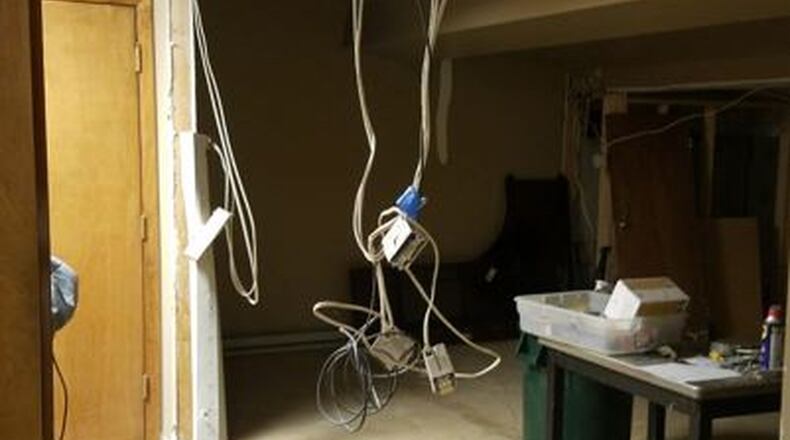This would begin the process designed to put the issue before voters in the Nov. 6 election.
The discussion comes as the city reviews consultant proposals to study local fire facilities, including whether to move the downtown station on West Silver Street out to city property just north of downtown at 511 N. Broadway, the former site of the city garage.
“The study will focus on identifying station building needs to adequately support the fire operation, as well as recommendations on the location of a new facility to best serve the community,” Lebanon City Manager Scott Brunka said in a memorandum to the council.
The vote would also conclude a series of work sessions in recent months during which the council discussed options, including renovation of Station 41 — a former laundry converted to a fire station in 1985 — and millages, or an income tax hike, to take to voters.
RELATED: Three fire departments put out Lebanon blaze
The effect of the levy on Lebanon tax bills will depend on taxpayers’ property value. For example, owners of homes valued at $100,000 are paying $233.20 annually on the current five-year levy, according to Warren County Auditor Matt Nolan.
If the council decides to replace the existing seven-mill levy with one for nine mills, it would cost the taxpayers $315 for every $100,000 of property value.
Last week, Brunka said he would make a presentation on Tuesday comparing the merits of seeking 8.5 mills and 8.75 mills with those of asking for nine mills, the amount recommended by staff and listed on proposed ordinances to be voted on Tuesday.
RELATED: Room to be made for Lebanon’s new ladder truck
The city has been supplementing the fire fund with income tax to support the department budget, typically $3.6 million. The plan based on a nine-mill levy would also support a $1 million budget reserve, Brunka said.
This includes six new full-time firefighters-EMTs who have helped improve service and boost morale, according to Fire Chief Steve Johnson.
Part-timers balance their shifts with other jobs, including with other fire departments, while full-timers are focused on the Lebanon department, which has experienced a 25 percent uptick in calls for service in the past five years, according to Brunka and Johnson.
“They are committed,” Johnson said during the most recent work session on March 6.
RELATED: Acting chief picked to head Lebanon fire division
Over the past decade, Johnson said the department has lost 70 to 80 part-timers to other departments.
The nine-mill levy is also projected to support moving the downtown station, which otherwise needs an estimated $300,000 in improvements, some simply to bring the living quarters up to city code, Brunka said.
The 8.5-mill option is projected to require the city to cut fire staff to maintain the budget cushion, 8.75 mils to fund the higher full-time staffing levels, but not moving the old fire station.
Moving the station would enable the local bank, LCNB, to acquire the existing property for additional parking for its new building, rather than requiring the city to “dress up” the back wall now facing LCNB parking. Also the move would end operations in a building lacking the second set of garage doors, enabling crews to respond when something is blocking the main bays.
RELATED: Lebanon adjust firefighter staffing policy
The council ended the March 6 discussion with a consensus for the nine-mill levy, after touring other communities’ stations.
“I’m all for letting people decide how they spend their money,” Councilman Doug Shope said.
Mayor Amy Brewer urged council and staff to move toward a decision on the levy amount sooner than the May 8 date previously planned. This would leave more time to communicate with voters.
“We’re going to need to do a lot of P.R. marketing,” Brewer said.
About the Author

